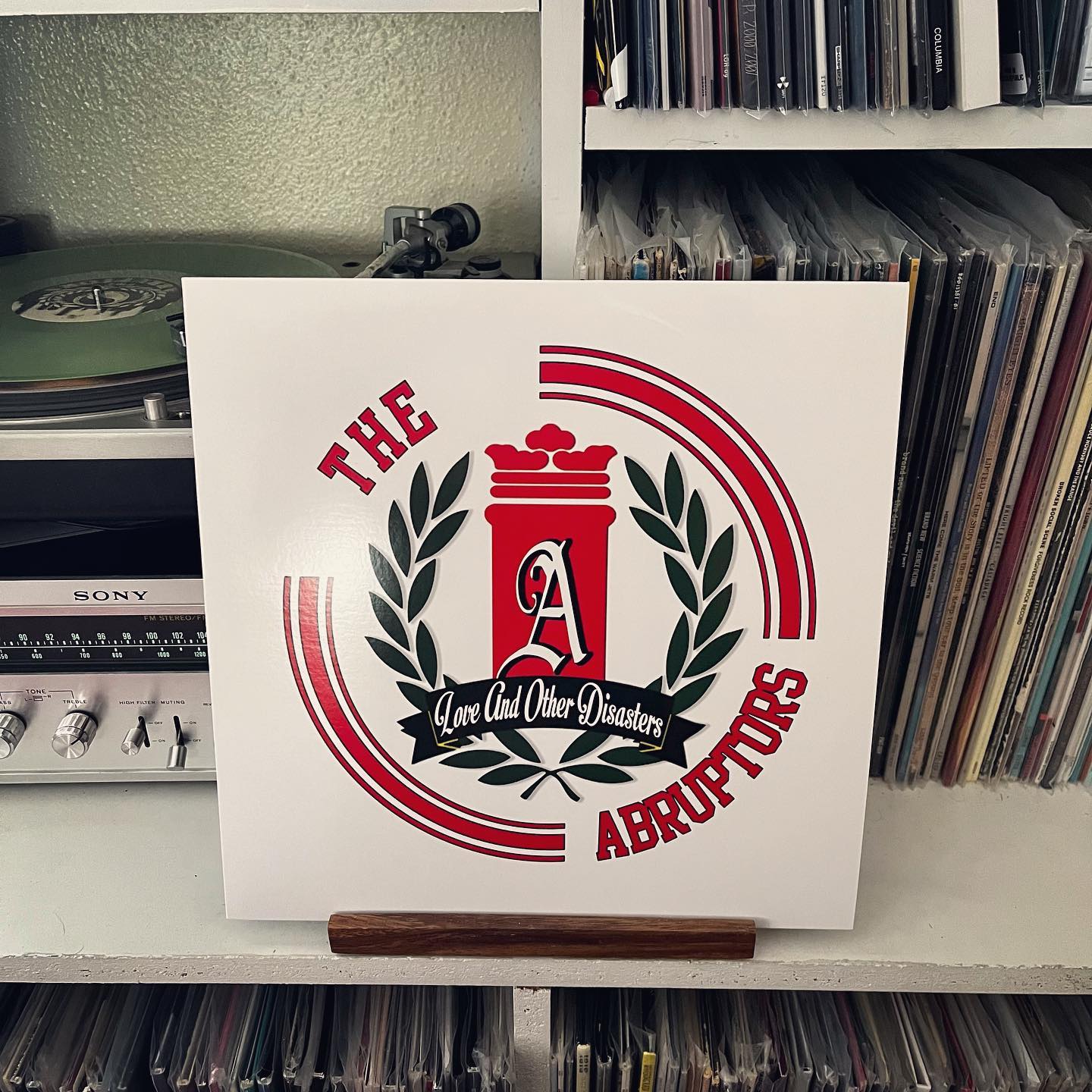
It might surprise folks, since I’m the frontman of a ska band myself, but I don’t listen to a ton of ska. In fact, before I joined that band, my vision of ska was very narrow, informed by my time in youth group in the late 90s and Tony Hawk’s Pro Skater. That is to say, I was almost exclusively aware of Christian Third Wave ska bands like Five Iron Frenzy and OC Supertones and also Goldfinger.
But as I’ve learned, ska is a far deeper tradition, with roots stretching to Jamaican folk music and permeating British anti-racist movements in the 70s before being co-opted by punk and hardcore in the 80s and then becoming the soundtrack for suburban middle schoolers hopped up on Mountain Dew in the 90s.
I was recently gifted this copy of Love and Other Disasters, the debut record from Buffalo NY outfit The Abruptors. And despite the time and place of its origins—and whatever expectations my brain might still make when I hear something described as ska—it lives much closer to the rocksteady and two-tone sounds of early ska acts like The Specials and Skatellites instead of the hyperactive mania of Third Wave, as well as some tasty flavors of 60s doo wop and R&B.
From the opening strains of “With My Luck,”the Abruptors offer up a delightful sonic platter of easygoing upstroked guitars, sweet horn harmonies, rocksteady rhythms, old school organs, and duetting male/female vocals that deliver surprisingly earnest songwriting. It’s not exactly what might come into a middle schooler’s head when he gets extra breadsticks, as the infamous tweet says, but it’s true and faithful ska, closer tied to the genre’s legacy than most Third Wave acts.
Limited though my depth with ska is, the most obvious point of reference is the Specials with smacks of No Doubt—not just because of the female vocals, but because No Doubt themselves were surprisingly orthodox in their ska. Tragic Kingdom had plenty of the same old-school rocksteady among the more quickly-paced moments.
The whole record is charming and satisfying, but the most arresting is the closing track “I Tried,” which turns to a minor key, its choruses punctuated with a haunting saxophone wail. One might (foolishly) not expect a ska song to carry any emotional weight, but this one packs a wallop, and even casts a melancholic shadow backward to the rest of the record.